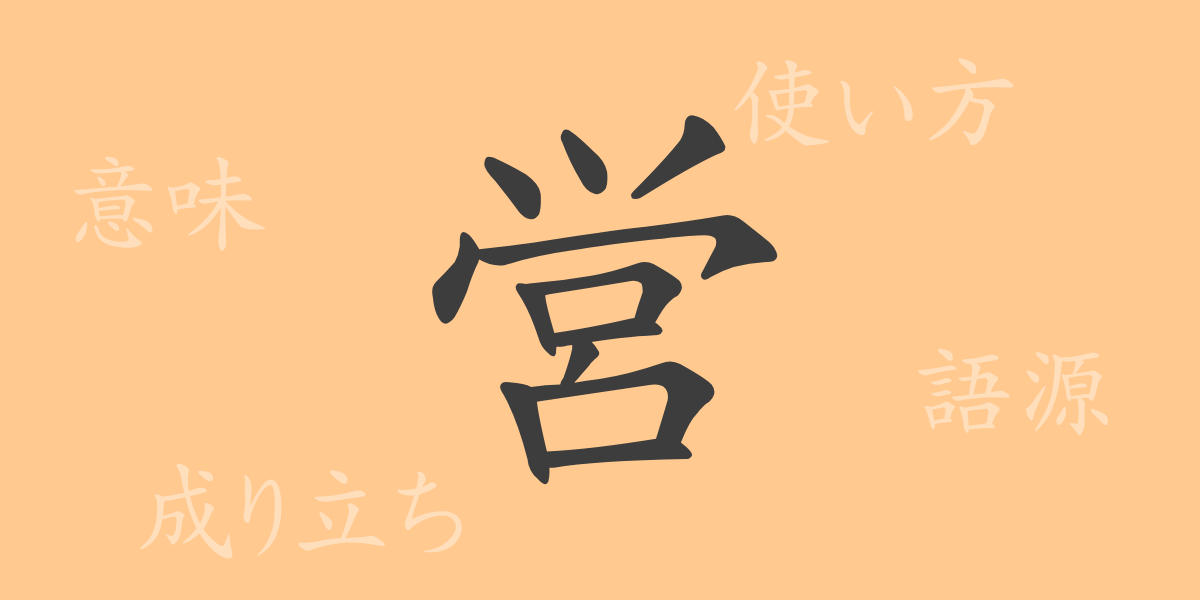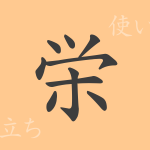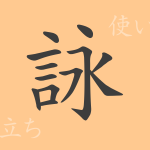“
The Japanese language contains many kanji characters with deep meanings. Among them, the kanji “”営”” (Ei) is widely used, from business to daily life, and can be said to reflect Japanese culture and values. In this article, we delve into the origin, meaning, and usage of “”営”” and explore its charm.
The Origin of 営 (Ei)
As its form suggests, the kanji “”営”” represents the image of a bird building a nest. In ancient China, “”営む”” (Itona-mu) originally meant birds building nests, and from there, it came to mean people establishing residences and making a living. From this basic meaning, it developed into the modern sense of conducting business or activities.
The Meaning and Usage of 営 (Ei)
In modern Japanese, “”営”” primarily refers to conducting business or activities. It is used in expressions such as “”営業”” (Eigyou), referring to a company conducting business, and “”生計を営む”” (Seikei- wo- itona-mu), meaning efforts to make a living. In a broader sense, it can also be used to mean maintaining something continuously.
Reading, Stroke Count, and Radical of 営 (Ei)
The kanji “”営”” has several readings that differ depending on the situation in which it is used.
- Reading: The on’yomi reading is “”エイ”” (Ei), and the kun’yomi reading is “”いとな・む”” (Itona-mu).
- Stroke Count: 12 strokes
- Radical: 口部 (Kuchi-hen)
Compound Words, Idioms, and Proverbs Using 営 (Ei) and Their Meanings
There are numerous compound words, idioms, and proverbs in Japanese that include “”営””. For example, “”営業権”” (Eigyouken) refers to the right to conduct business, while “”営業日”” (Eigyoubi) refers to business days. Additionally, the expression “”営むに忍びず”” (Itona-mu ni -shino-bizu) is an idiom meaning that it is difficult to continue doing something. These words are deeply rooted in Japanese life and thought.
Conclusion on 営 (Ei)
The kanji “”営”” holds an important meaning, representing the foundation of people’s lives and businesses, derived from the image of birds building nests. This widely used kanji in Japan symbolizes the importance of conducting business and the efforts to make a living. The diverse expressions that “”営”” has in the Japanese language are closely related to its cultural background and are an indispensable part of Japanese life.
“

























